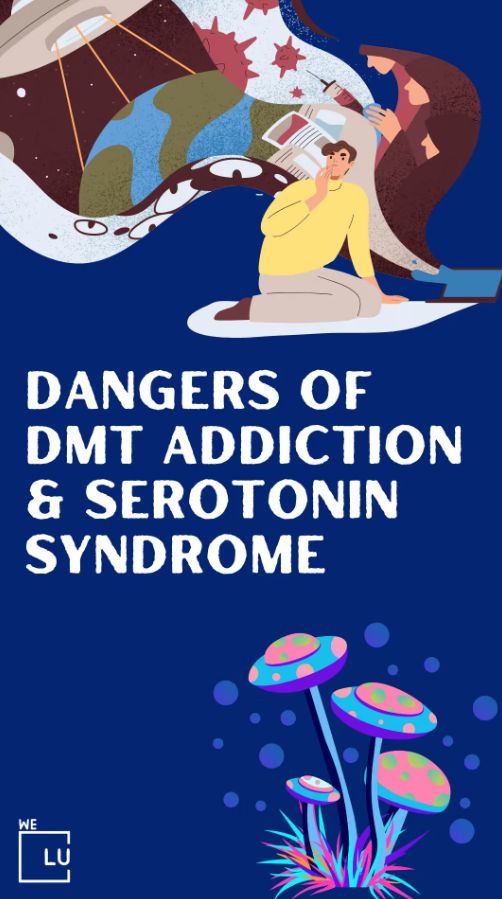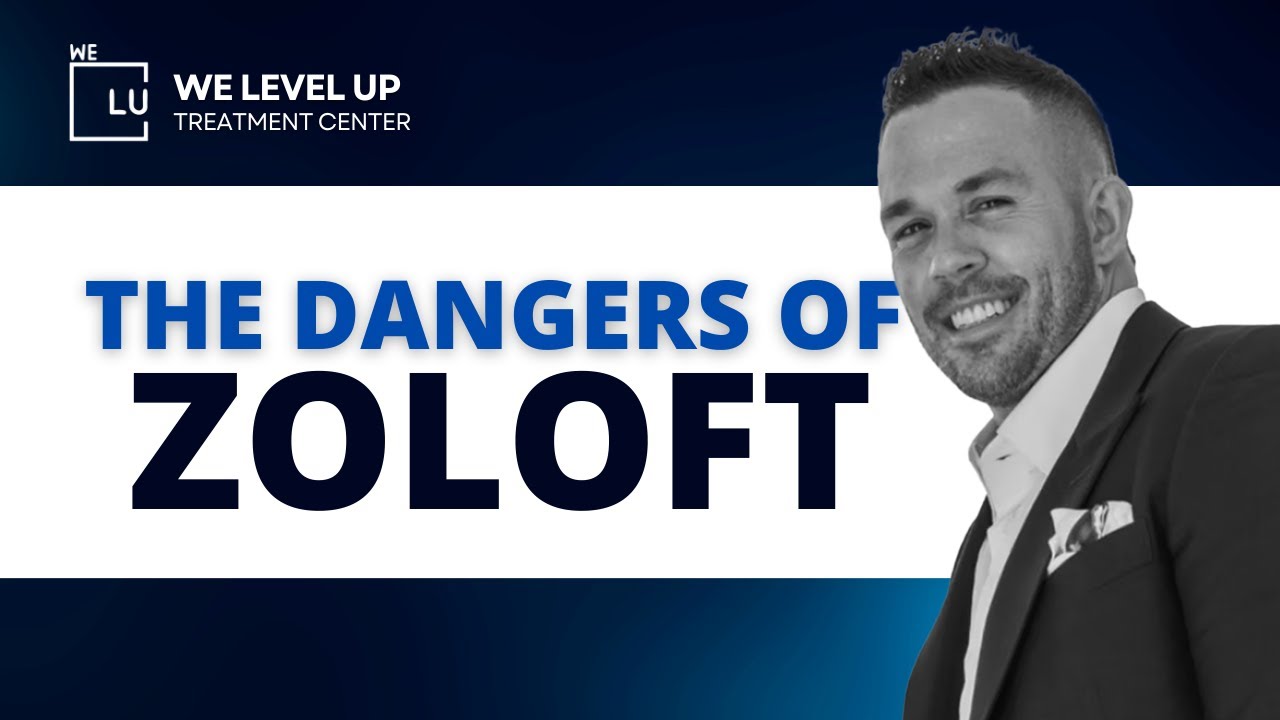What is Dimethyltryptamine?
N, N-Dimethyltryptamine (DMT) is a compound naturally found in numerous plants and animals, including humans. People have been using DMT for its psychedelic or hallucinogenic effects. This substance is prepared and utilized by various cultures, contributing to its historical significance in different ceremonial practices and as a recreational drug.
According to research published by the US NCBI PubMed, the experiences derived from the administration of hallucinogens, including DMT, are often compared to dream states. However, the experience of administering hallucinogenic substances is far more intense, robust, and overwhelming than the subtlety of mere dreams. [1]
According to the US National Survey on Drug Use and Health in 2019, around 5.6 million people aged 12 or older reported using hallucinogens, including DMT. Still, the prevalence of hallucinogen use tends to be lower compared to substances like marijuana, alcohol, or prescription drugs. [2]
DMT Street Names
Like other hallucinogens, internet sales and distribution have served as the source of DMT supply in the US. Some common DMT slang names used to conceal illicit production and usage include:
- Dimitri.
- Spice.
- Businessman’s Trip.
- Fantasia.
- The Spirit Molecule.
- The Businessman’s Special.
- The Light.
- The Simple.
- The Ultimate.
- 45-Minute Psychosis.
DMT has no approved medical use in the United States but can be used by researchers under a Schedule I research registration that requires DEA and the Food and Drug Administration approval. [3]
What Does DMT Feel Like?
The onset of DMT effects is rapid but usually resolves within 30 to 45 minutes. The dimethyltryptamine experience and psychological effects include:
- Intense visuals.
- Altered perception of time.
- Profound spiritual experiences.
- Sense of entering other realms.
- Rapid onset and short duration.
- Altered sense of self.
- Overwhelming and immersive sensations.
- Potential encounters with entities or beings.
- Emotional intensity.
- Aftereffects of awe or introspection.
DMT is used for its psychoactive effects. The extreme effects and short duration of action are attractive to people who want the psychedelic experience but do not prefer to experience the mind-altering perceptions over an extended period, as occurs with other hallucinogens, like LSD (acid.) [4]

Warning About DMT Use
Using DMT, together with drugs that affect serotonin levels, such as certain antidepressants or MAOIs (monoamine oxidase inhibitors), can potentially lead to serotonin syndrome. The symptoms include confusion, rapid heartbeat, dilated pupils, and muscle rigidity, and in extreme cases, it can lead to seizures. If you suspect serotonin syndrome, call emergency help immediately.

Skip To:
Learn More:
Dimethyltryptamine Extraction
DMT extraction, synthesis, or production is illegal in the US.
It has gained popularity as a drug of abuse in the 1960s. Today, it is still encountered on the illicit market along with several other tryptamine hallucinogens. DMT in several plants can be extracted or synthetically produced in clandestine labs. [5]
How is DMT Used?
DMT is generally smoked or consumed orally in brews like Ayahuasca. Other methods of use include:
- Vaporizing.
- Snorting (less common).
- Injecting (rare).
- Buccal administration.
- Intranasal administration.
- Sublingual administration.
- Rectal administration (less common).
- Oral consumption (ineffective without an MAOI).
How Long Does DMT Last?
Generally, a DMT experience doesn’t last long compared with certain other hallucinogens. DMT’s effects when smoked are quick to start and pass quickly—usually between five and twenty minutes.
When taken orally as part of the ayahuasca brew, the effects might linger for a few hours, usually four to six hours. Ayahuasca is an Amazonian psychoactive brew of two main components. Its active agents are β-carboline and tryptamine derivatives. [6]
DMT Side Effects
DMT trips can trigger a mental health condition and lead to flashbacks. The most common side effects of DMT also include the following:
- Increased heart rate.
- Elevated blood pressure.
- Nausea and vomiting.
- Intense visual and auditory hallucinations.
- Altered sense of time.
- Profound emotional experiences.
- Anxiety or panic reactions.
- Paranoia.
- Sweating or chills.
- Impaired coordination.
DMT can produce wildly unpredictable – and sometimes very fearful – effects, which feed off an individual’s imagination. If panic sets in, the experience can be terrifying and confusing. [7]
Is DMT Addictive?
According to research recorded in the US PubMed Journal Review, unlike many hallucinogens, there is little evidence that DMT causes physical withdrawal symptoms or tolerance. This is why researchers generally do not think that DMT is habit-forming. Also, there is no evidence using DMT on a long-term basis significantly changes or damages a human’s brain. However, DMT can cause psychological dependence when an individual frequently uses it to escape reality. Some DMT users even believe that the drug is a source of therapy and take it regularly to feel better. [8]
When you use DMT in this way, you may eventually feel incapable of stopping using DMT and other hallucinogens. The typical behaviors that indicate DMT addiction include:
- Taking higher and more recurring usage of the drug.
- Gathering supplies of it.
- Spending more money on it.
Dimethyltryptamine Death
DMT is not considered lethal in typical use, and fatal overdoses are extremely rare. However, like any powerful psychedelic substance, DMT can induce intense and unpredictable psychological effects. The risk of harm is more associated with the psychological impact rather than the substance itself being directly toxic in typical doses.
The use of DMT carries risks, and individuals with a history of mental health issues or those who are susceptible to anxiety or panic reactions may be particularly vulnerable to adverse effects. [9]
Get Help. Get Better. Get Your Life Back.
Searching for Accredited Drug and Alcohol Rehab Centers Near You? We Level Up Texas Is Opening Soon!
Even if you have failed previously and relapsed, or are in the middle of a difficult crisis, we stand ready to support you. Our trusted behavioral health specialists will not give up on you. When you feel ready or just want someone to speak to about therapy alternatives to change your life call us. Even if we cannot assist you, we will lead you to wherever you can get support. There is no obligation. Call our network hotline today.
FREE Addiction Hotline – Call 24/7DMT Addiction Treatment
According to the National Institute on Drug Abuse (NIDA), there has been growing research interest in the potential of psychedelic and dissociative drugs to treat medical conditions, including mental health disorders. Unfortunately, an increasing number of individuals also report taking these drugs, including DMT, outside of medical settings. [10] This problem interferes with research on the psychedelics’ potential.
Consult a mental health expert or addiction specialist for advice if you think a loved one may be misusing DMT or any other substance. DMT rehab therapy may benefit from a treatment strategy that includes counseling, inpatient care, or a combination of treatments. Cognitive-behavioral therapy (CBT) and counseling are often employed techniques to comprehend the causes of psychedelic usage and create coping mechanisms.
Opening Soon! First-Class Facilities & Amenities
World-Class High-Quality Addiction & Mental Health Rehabilitation Treatment
Coming Soon! Rehab Centers TourRenowned Addiction Centers. Serene Private Facilities. Inpatient Rehab Programs Vary.
FREE Addiction Hotline – Call 24/7Proven recovery success experience, backed by a Team with History of:
15+
Years of Unified Experience
100s
5-Star Reviews Across Our Centers
10K
Recovery Success Stories Across Our Network
- Low Patient to Therapist Ratio
- Onsite Medical Detox Center
- Comprehensive Dual-Diagnosis Treatment
- Complimentary Family & Alumni Programs
- Coaching, Recovery & Personal Development Events
We Level Up Texas DMT Rehab Center (Opening Soon!)
The most structured treatment facility for people overcoming DMT addiction is an inpatient rehab center. Patients stay on-site for the entire program, lasting 30, 60, or 90 days. Treatment professionals will support your recovery journey and provide helpful resources to help you easily continue your sobriety. These resources typically include information on overcoming triggers, the value of relapse prevention programs, and what to do in the case of a relapse.
You may rest easy knowing aid is always available because you’ll have access to doctors and other specialists around the clock during inpatient treatment. Furthermore, a fixed timetable for inpatient treatment programs includes rejuvenating meals, therapies, counseling sessions, and activities for the rest of the day during your stay.
The supportive environment of our facility is designed to give clients 24-hour care for recovery, removing temptations for relapse and applying an air of recovery into every segment of the treatment timeline.

Opening Soon! World-class, Accredited, Anticipated 5-Star Reviewed, Effective Addiction & Mental Health Programs. Complete Behavioral Health Inpatient Rehab, Detox plus Co-occuring Disorders Therapy.
FREE Addiction Hotline – Call 24/7End the Addiction Pain. End the Emotional Rollercoaster. Get Your Life Back. Start Drug, Alcohol & Dual Diagnosis Mental Health Treatment Now. Get Free No-obligation Guidance by Substance Abuse Specialists Who Understand Addiction & Mental Health Recovery & Know How to Help.
What is Dimethyltryptamine (DMT)? DMT Trip and DMT Effects in the Brain | Informative Video
Start a New Life
Begin with a free call to an addiction & behavioral health treatment advisor. Learn more about our dual-diagnosis programs. The We Level Up treatment center network delivers recovery programs that vary by each treatment facility. Call to learn more.
- Personalized Care
- Caring Accountable Staff
- World-class Amenities
- Licensed & Accredited
- Renowned w/ 100s 5-Star Reviews
We’ll Call You
Search We Level Up Texas Dimethyltryptamine Addiction Treatment, Detox Topics, and Resources
Sources
- Barker SA. N, N-Dimethyltryptamine (DMT), an Endogenous Hallucinogen: Past, Present, and Future Research to Determine Its Role and Function. Front Neurosci. 2018 Aug 6;12:536. Doi: 10.3389/fnins.2018.00536. PMID: 30127713; PMCID: PMC6088236.
- Key Substance Use and Mental Health Indicators in the United States: Results from the 2020 National Survey on Drug Use and Health – Substance Abuse and Mental Health Services Administration (SAMHSA)
- N, N-DIMETHYLTRYPTAMINE (DMT) – Drug Enforcement Administration (DEA)
- Nichols DE. Psychedelics. Pharmacol Rev. 2016 Apr;68(2):264-355. Doi: 10.1124/pr.115.011478. Erratum in: Pharmacol Rev. 2016 Apr;68(2):356. PMID: 26841800; PMCID: PMC4813425.
- Schedules of Controlled Substances: Placement of 5-Methoxy-N, N-Dimethyltryptamine Into Schedule I of the Controlled Substances Act
- Frecska E, Bokor P, Winkelman M. The Therapeutic Potentials of Ayahuasca: Possible Effects against Various Diseases of Civilization. Front Pharmacol. 2016 Mar 2;7:35. Doi: 10.3389/fphar.2016.00035. PMID: 26973523; PMCID: PMC4773875. Research related to dimethyltryptamine side effects: Can you get addicted to DMT? Is DMT addicting? DMT for addiction.
- Gable RS. Risk assessment of ritual use of oral dimethyltryptamine (DMT) and harmala alkaloids. Addiction. 2007 Jan;102(1):24-34. Doi: 10.1111/j.1360-0443.2006.01652.x. PMID: 17207120.
- Dimethyltryptamine- https://www.sciencedirect.com/topics/neuroscience/dimethyltryptamine
- Timmermann C, Roseman L, Williams L, Erritzoe D, Martial C, Cassol H, Laureys S, Nutt D, Carhart-Harris R. DMT Models the Near-Death Experience. Front Psychol. 2018 Aug 15;9:1424. Doi: 10.3389/fpsyg.2018.01424. PMID: 30174629; PMCID: PMC6107838.
- Psychedelic and Dissociative Drugs – National Institute on Drug Abuse (NIDA)






